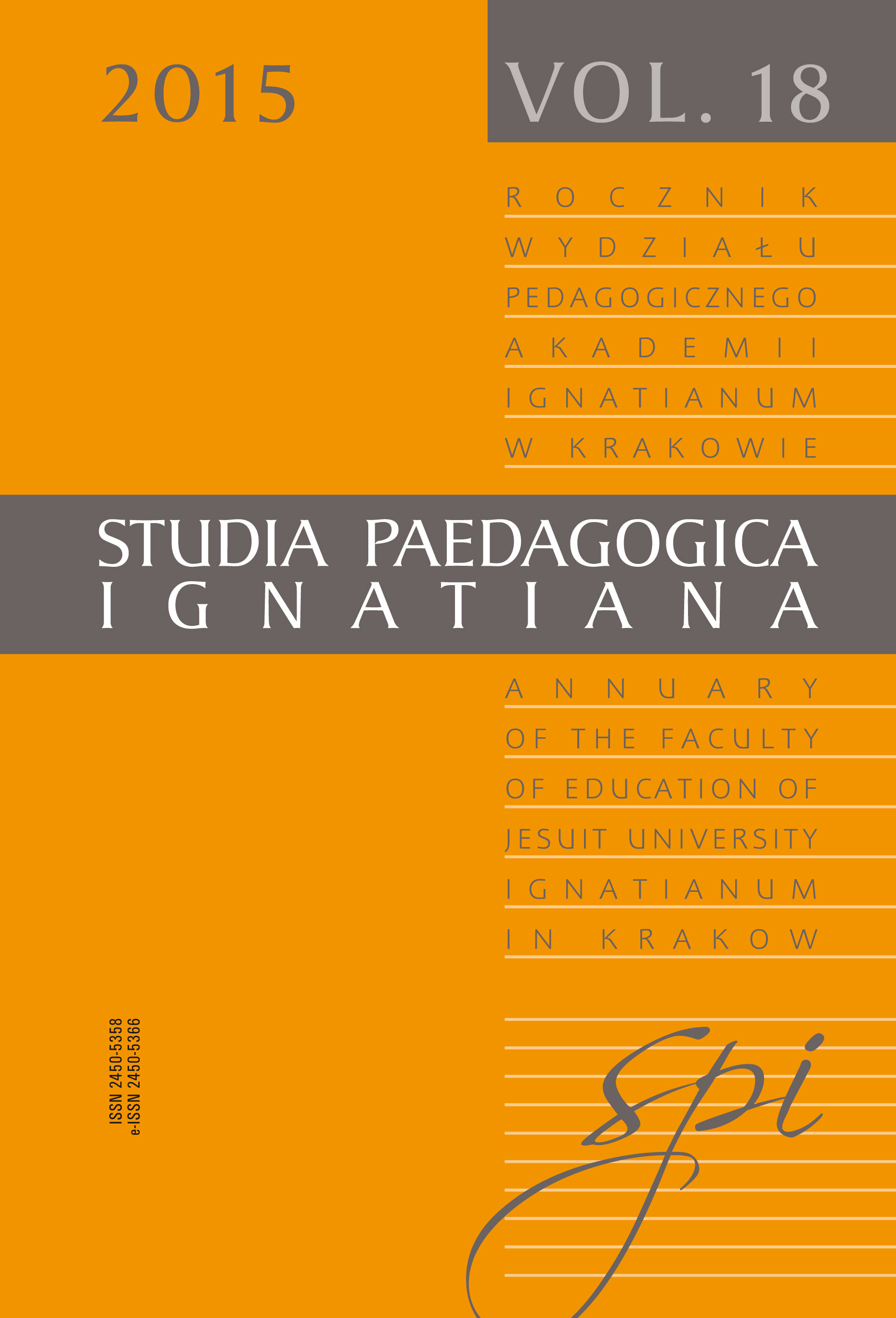Judgment, Imagination and Bildung
DOI:
https://doi.org/10.12775/SPI.2015.001Keywords
education, hermeneutics, imagination, judgment, politicsAbstract
Pedagogical practices that cultivate the capacities for individuals to think and to reason for themselves play a critical part in promoting the individual’s participation in democratic politics. Political deliberation and public decisions that give the will to live together its direction depend on the abilities of citizens to engage critically with the issues and challenges that threaten the common good. In this article, I argue that the kind of cultural knowledge that a liberal arts education traditionally entails also contributes to the individuals’ self-formation. The semantic complexity of the concept of Bildung bears out this connection between the cultivation of one’s aptitudes and the power to exercise one’s own judgment. This power in turn highlights the role played by imagination in reforming or revolutionizing praxis. In this regard, the experiences afforded by music, literature, cinema, theater and works of art teach us to be open to new ways of thinking, feeling and acting. Similarly, the schooling in phronesis that supports the development of the individual’s autonomy is at the same time a cultural good and a pedagogical obligation.
References
Arendt H., Between Past and Future, Penguin Books, New York 1977.
Arendt H., The Promise of Politics, ed. J. Kohn, Schocken Books, New York 2005.
Arendt H., Reflections on Literature and Culture, ed. S.Y.-A. Gottlieb, Stanford University Press, Stanford 2007.
Bourdieu P., Outline of a Theory of Practice, transl. R. Nice, Cambridge University Press, Cambridge 1977.
Bourdieu P., Distinction: A Social Critique of the Judgment of Taste, transl. R. Nice, Harvard University Press, Cambridge, MA 1984.
Campbell D., The Mozart Effect, Avon Books, New York 1997.
Gadamer H.-G., Truth and Method, 2nd revised edition, transl. J. Weinsheimer and D.G. Marshall, Crossroad Publishing Co., New York 1989.
Koselleck R., The Practice of Conceptual History: Timing History, Spacing Concepts, transl. T.S. Presner et. al, Stanford University Press, Stanford 2002.
Ricoeur P., “The Metaphorical Process as Cognition, Imagination and Feeling”, Critical Inquiry 1978, vol. 5, no. 1, (Special Issue On Metaphor), pp. 143–159.
Ricoeur P., A Ricoeur Reader: Reflection and Imagination, ed. M.J. Valdés, University of Toronto Press, Toronto 1991.
Ricoeur P., Critique and Conviction, Polity Press, Cambridge 1998.
Ricoeur P., The Just, transl. D. Pellauer, The University of Chicago Press, Chicago 2000.
Ricoeur P., Memory, History, Forgetting, transl. K. Blamey and D. Pellauer, The University of Chicago Press, Chicago 2004.
Ricoeur P., The Course of Recognition, transl. D. Pellauer, Harvard University Press, Cambridge, MA 2005.
Ricoeur P., Reflections on the Just, transl. D. Pellauer, The University Press of Chicago, Chicago 2007.
Ricoeur P., Azouvi F., De Launay M.B., Critique and Conviction: Conversations with François Azouvi and Marc de Launay, transl. K. Blamey, Columbia University Press, New York 1998.
Savage R.W.H., “The Wager of Imagination and the Logic of Hope”, in: P. Ricoeur in Age of Hermeneutical Reason: Poetics, Praxis and Critique, ed. R.W.H. Savage, Lexington Books, Lexington, MA 2015, pp. 139–158.
The Mozart Effect: How Music Makes You Smarter, Available from: <http://www.howtolearn.com/products/mozart-effect>. Accessed: August 25, 2015.
Downloads
Published
How to Cite
Issue
Section
License
By submitting an article, the author declares that:
they are the author of the article (hereinafter referred to as the Work) and:
- is entitled to exclusive and unlimited copyright to the Work,
- is entitled to dispose of the copyrights to the Work.
The Author grants the Jesuit University Ignatianum in Cracow a free, non-exclusive, territorially unlimited license to use the Work in the following fields of exploitation:
- publishing the Work in paper, digital or magnetic form;
- multiplying the work by any method, without limiting the number of editions or copies;
- distribution of the work and its copies in any form, including marketing, sales, lending, and lease;
- placing the work in a computer memory;
- distribution of the work in information networks, including the Internet;
- public performance, exhibition, display, reproduction, broadcasting and re-broadcasting, as well as making the Work available to the public in such a manner that everyone could have access to it at a time and place chosen by themselves;
- within the scope of dependent rights to the Work, covering, in particular, the right to make necessary changes to the Work, resulting from editorial and methodical preparation, as well as to make translations of the Work into other languages.
The license right shall be transferred the moment of transfer of the Work to the Jesuit University Ignatianum in Cracow. The Jesuit University Ignatianum in Cracow is entitled to grant sub-licenses to the Work in terms of the right granted. The license shall be limited in time for a period of 15 years from the date it is granted.
Stats
Number of views and downloads: 462
Number of citations: 0



